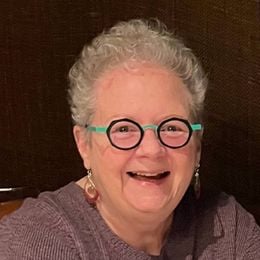It's Never Too Late to Learn Something New
Don't just watch the kids go back to school this fall
Lunchbox? Check. Backpack? Check. New outfit for the first day? Check.

So you’ve helped get a grandchild or other youngster ready to go back to school. But what about you? Staying mentally active after 50 stimulates neural networks, increases knowledge, enriches life and provides opportunities for social interaction and fun at the same time.
Maybe you’ve secretly always wanted to speak Italian or learn to quilt or try your hand at landscaping. Maybe you’re ready to take up Scuba diving or acting. Perhaps it's time you developed a new skill that will boost your productivity at work. Or maybe you’re eager to go deep with Shakespeare’s history plays, take up memoir writing, better appreciate opera or learn to make beer.
And maybe now you have the time.
Educational opportunities abound for people 50 and older, in settings that range from traditional classrooms to senior centers to the back room in ceramics shops. You can opt for semester-long courses with or without tests, short-term “quick hit” classes or a scheduled lecture series that provides entertainment as well as education. Some opportunities are free and others are available at discounted prices.
Any learning opportunity can change your life for the better. Consider the Seattle woman I know who waited until her kids were grown to enroll in college. The junior college near her home had just one class available, on geology. She took it, got hooked and went on to earn a master’s degree. Now she is a naturalist with National Geographic/Lindblad Expeditions, and she writes poems about basalt and other rock formations.
Here are some ideas on where to look for learning opportunities:
Traditional Schools
Most universities, colleges and junior colleges welcome older adult students. The Penny Hoarder, which started as a blog in 2010 and now claims to have 16 million readers and 1.5 million email subscribers, has located free or cheap college classes for older adults in all 50 states.
“While some institutions only allow senior students to audit classes, many offer the chance to earn credits toward a degree at a reduced — or completely waived — tuition rate,” says the website. Look for opportunities in your state here.
One 70-year-old man in St. Louis first started auditing classes a decade ago at a junior college near his home. “When I retired, I wanted to learn about Photoshop. In a one-day class, sometimes you get too much information at once, so I signed up instead at the junior college,” he said. Since then, he has enrolled in courses on web design, videography and horticulture.
Auditing classes costs him as little as half the regular tuition; sometimes, classes that aren’t full go for even less. “I feel right at home in class, and I always get an ‘A’ for audience participation because I always have a lot of questions,” he said. “I’m learning for the sake of learning.”
Some high schools offer evening classes for adults. On the south shore of Long Island in New York, the Merrick Central High School District offers “a wide array of courses selected to meet the educational, vocational, cultural and recreational needs and interests of adult residents of the community.” Check with a high school near you for learning opportunities.
Osher Centers for Lifelong Learning
The Bernard Osher Foundation supports 120 lifelong learning programs on college campuses everywhere from Huntsville, Ala., to Fairbanks, Alaska. The foundation, founded in 1977 and based in San Francisco, funds at least one non-credit educational program in each of the 50 states and the District of Columbia.
Each program welcomes adults age 50 and older with “a diverse repertoire of intellectually stimulating courses.” And each is required to operate with “robust volunteer leadership” and have established mechanisms for evaluating classes offered and participant satisfaction. To find an Osher-funded program near you, go to the Osher Foundation site.
Last year, Steve Thaxton, executive director of the National Resource Center for Osher Lifelong Learning Institutes, spoke with Next Avenue about adult learning trends in the future.
The Oasis Institute
Founded in St. Louis in 1982, Oasis promotes “healthy aging through lifelong learning, active lifestyles and volunteer engagement.” The nonprofit educational organization serves adult learners in 40 cities and is said to reach more than 50,000 individuals each year. Find out at this part of the Oasis site if Oasis is available where you live.
In addition to developing national programs and providing training and support for individual Oasis education centers, the Oasis Institute also works with hundreds of partners interested in lifelong learning, including health providers, corporations, senior centers, community organizations, libraries, colleges and senior living organizations.
Local Community Centers and Shops
Many city parks and recreation departments offer classes and activities for older adults. In Austin, the city's website says, its activities for people 50 and older include “pursuing old hobbies and learning new ones, socializing with friends, meeting new people, increasing knowledge, becoming and staying physically fit, supplementing income and contributing to the community.”
Jewish Community Centers (JCC), with more than 350 locations across the country, welcome one and all to a variety of classes in everything from pottery to yoga to painting to mindfulness-based stress reduction to dance. Some JCCs also sponsor book clubs and provide lectures by art museum docents about current exhibits around town.
Community-based senior centers often provide classes on topics that interest participants, including everything from chair caning to current events to working with mosaic tiles. If a center near you doesn’t teach what you want to learn, propose the topic and help find an instructor.
In your quest to learn something new, don’t overlook local shops owned by artisans. If the owner doesn’t offer classes in his or her specialty, ask about a trial apprenticeship so you can determine whether, say, woodworking or knitting or glass blowing suits you.
Classrooms on the Move
If hands-on learning about other countries, other cultures or just the geology of your own state interests you, look to an educational travel program. Road Scholar, formerly known as Elderhostel, offers more than 5,500 study tours throughout the U.S. and Canada and in 150 other countries, all geared to older adults and led by experienced guides.
Group size, activity levels and prices vary according to the trip, and some scholarships are available. Destinations include The Kentucky Derby, several national parks, “signature cities” of the world and a cruise on the Columbia and Snake Rivers following the path of Lewis and Clark.
Also, some colleges sponsor educational travel opportunities for alumni. Check with yours and say that you are ready to go back to school. No new outfit required!


